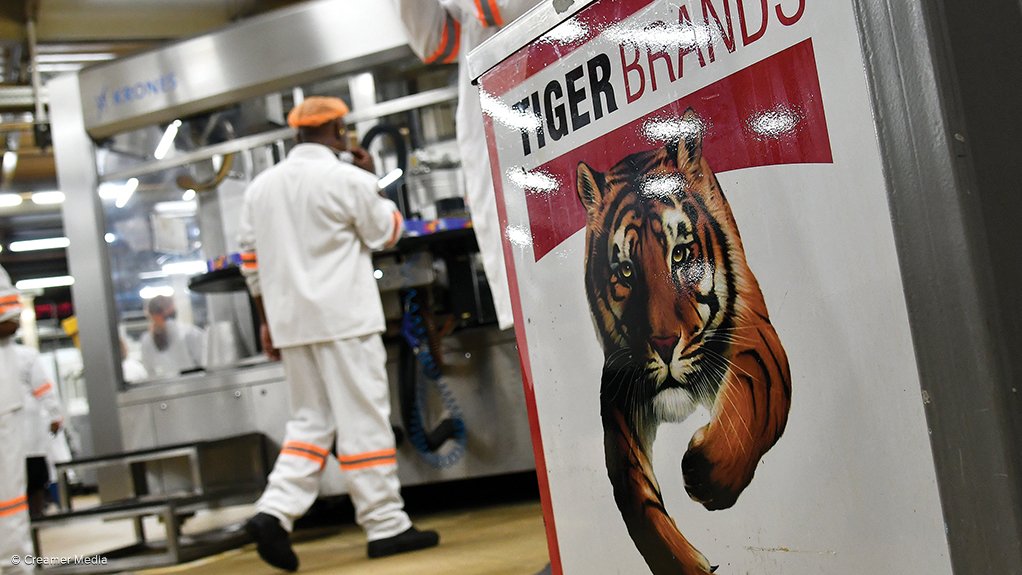Law firm RSI Attorneys has urged fast-moving consumer goods manufacturer Tiger Brands to accept liability for the world’s largest listeriosis outbreak in 2017/18 and compensate the victims that still suffer six years after the fact.
In a briefing hosted on September 9, RSI unpacked additional evidence it says links Tiger Brands to the listeriosis outbreak South Africa experienced in 2017/18.
As South Africa commemorates the sixth anniversary of the listeriosis outbreak, RSI and LHL Attorneys are launching a campaign calling on Tiger Brands to compensate those whose lives were affected after they or their loved ones ate infected products.
The law firms are representing more than 1 000 claimants in the matter.
At the time of the outbreak in 2017 and 2018, the National Institute for Communicable Diseases (NICD) confirmed that traces of the ST6 genetic variant of listeria was found at Tiger Brands subsidiary Enterprise Foods’ meat processing facility, in Polokwane. The facility has since been sold.
The outbreak resulted in more than 1 000 confirmed cases of listeriosis, of which 218 were fatal between 2017 and 2018.
Of the confirmed cases, 465 were associated with pregnancy.
Listeriosis is an infectious disease of the blood or the brain caused by listeria bacteria. In generally healthy persons, the symptoms can be limited to limited nausea, vomiting, headaches, fevers. However, invasive listeriosis can result in serious health complications, including sepsis, meningitis or encephalitis, which can cause lifelong harm.
The case was brought as a class action in March 2018, which involves a certification phase and a merits and damages phase. While Tiger Brands agreed to certification in 2018, RSI says the group is delaying settlement of the case despite having undeniable evidence that it was the only source of the ST6 listeria strain.
RSI says Tiger Brands is “using every legal loophole available” to delay compensating the surviving victims, including children who were infected in utero and are now experiencing serious health complications and developmental delays.
The additional evidence came to light through an investigation by the NICD using core genome multilocus sequence typing, which confirmed that 382 ST6 listeria isolates – of human, product and environmental origin – had no more than four allelic, or genetic, differences. This further linked the infections to the Polokwane facility with certainty.
International microbiological expert Dr Peter Gerner-Smidt says the genetic matching leaves no doubt that Tiger Brands, particularly its polony products, was the main and likely only source of the outbreak.
He asserts that the investigation of the outbreak was done using the best methods available and that the outbreak was by far the biggest ever recorded in the world.
Yet, RSI says, Tiger Brands has still not acted despite having prior evidence and new evidence as at the end of January.
RSI points out the example of a young girl who contracted listeriosis in utero and has since suffered extensive neurological damage, including hydrocephalus, which requires multiple brain surgeries.
Other cases include children that are unable to walk, sit up unassisted or eat solid foods, as well as those having seizures, with the parents often being unable to settle the associated high hospital debt bills.
RSI senior attorney Thamsanqa Malusi explains Tiger Brands’ insurers Stalker Hutchison Admiral and QBE Insurance Group have played a key role in the negotiations in the matter, with the litigation being handled by the insurers and not Tiger Brands directly.
“Insurance companies often have vested interests in making sure that whatever money is earmarked for settlement gains as much interest as possible before that money is paid out to victims,” Malusi adds.
RSI states that if there is no immediate intervention in the case, the condition of the victims will worsen and parents of the children become increasingly financially strained.
The law firms are categorising the cases into four different classes based on the type of harm they suffered, including individuals that contracted listerioris and suffered harm, individuals who contracted listeriosis in utero, individuals who were dependent on another person who died from listeriosis and individuals who are or were supporting another person who contracted listeriosis.
RSI founding director Richard Spoor estimates the compensation to be paid out to victims to be between R1.5-billion and R2.5-billion.
In response to a query for comment, Tiger Brands tells Engineering News that the company is saddened by the impact having been caused by the listeriosis outbreak. The group reiterates its commitment to ensure a resolution of the class action lawsuit in the interest of all parties, particularly the victims of listeriosis.
Tiger Brands confirms that its legal team and the plaintiffs' attorneys jointly approached the NICD for access to their records relevant to the outbreak, which is vital to a determination of the class action. In February 2024, the NICD tendered the files to their investigation of the outbreak, which Tiger Brands says is still being reviewed by its insurers and their appointed experts.
Tiger Brands says its legal team continues to attend pre-trial preparations to get the matter ready for trial, where liability will be determined by the court. "The court will allocate a trial date once all necessary pre-trial procedures have been attended to and the matter is ready to proceed to trial."
EMAIL THIS ARTICLE SAVE THIS ARTICLE ARTICLE ENQUIRY
To subscribe email subscriptions@creamermedia.co.za or click here
To advertise email advertising@creamermedia.co.za or click here











